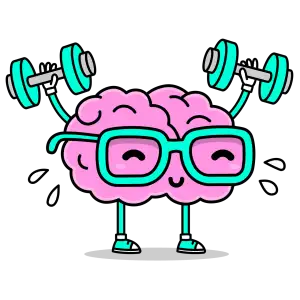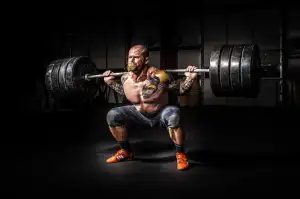Best Vitamins for Men Working Out: Fuel Your Fitness Journey

- Vitamin D for Muscle Growth
- B Vitamins for Energy Boost
- Vitamin C for Recovery
- Protein for Muscle Building
- Creatine for Strength Gains
- BCAAs for Muscle Repair
- Glutamine for Muscle Soreness
- Omega-3s for Joint Health
- Zinc for Testosterone Levels
- Magnesium for Muscle Function
- Pre-Workout Supplements for Performance
- Post-Workout Nutrition for Recovery
- Importance of Hydration
- Consulting a Healthcare Professional
Vitamin D for Muscle Growth
Vitamin D plays a crucial role in calcium absorption, which is essential for strong bones. Research suggests that vitamin D may also impact muscle function and growth. Studies have shown a correlation between vitamin D deficiency and decreased muscle strength and increased risk of falls. While more research is needed to determine the optimal dosage and its direct impact on muscle growth, maintaining adequate vitamin D levels is essential for overall health and well-being, particularly for active men.
When it comes to the best vitamins for men who work out, it's crucial to focus on a balanced and nutritious diet that provides all the necessary nutrients. However, supplementation can be beneficial to fill in potential gaps. Here are some of the best vitamins for men who work out: Vitamin D, Vitamin C, B Vitamins, Vitamin E.
Remember, it's always best to consult with a healthcare professional or registered dietitian to determine the appropriate vitamin dosage and address any specific dietary needs or concerns. They can provide personalized recommendations based on your individual health status and fitness goals.
B Vitamins for Energy Boost
B vitamins play a crucial role in converting food into energy, making them essential for active men.
They act as coenzymes in various metabolic processes that break down carbohydrates, fats, and proteins into usable fuel for your workouts.
While all B vitamins contribute to energy production, some are particularly important for men who work out:
B1 (Thiamine): Essential for carbohydrate metabolism, thiamine helps convert carbohydrates into glucose, the primary energy source for your muscles during exercise.
B2 (Riboflavin): Involved in energy production from carbohydrates, fats, and proteins, riboflavin helps transport oxygen throughout your body, crucial for endurance and stamina.
B3 (Niacin): Plays a vital role in converting food into energy and supports healthy blood flow, ensuring your muscles receive the oxygen and nutrients they need during workouts.
B5 (Pantothenic Acid): Involved in the breakdown of fats and carbohydrates for energy and the synthesis of hormones involved in stress response and recovery.
B6 (Pyridoxine): Essential for protein metabolism and helps convert glycogen into glucose for energy during exercise.
B7 (Biotin): Plays a crucial role in metabolizing carbohydrates, fats, and proteins, supporting energy production during workouts.
B9 (Folate): Essential for cell growth and repair, folate helps your body recover from intense workouts and build new muscle tissue.
B12 (Cobalamin): Involved in red blood cell formation, which carries oxygen throughout your body, B12 is crucial for energy levels and fighting fatigue during workouts.
To ensure you're getting enough B vitamins, focus on a balanced diet rich in whole grains, lean meats, poultry, fish, beans, lentils, nuts, seeds, and leafy green vegetables. Consider a high-quality B-complex supplement if you're concerned about your intake, especially if you follow a restrictive diet or have increased nutrient needs due to intense training.
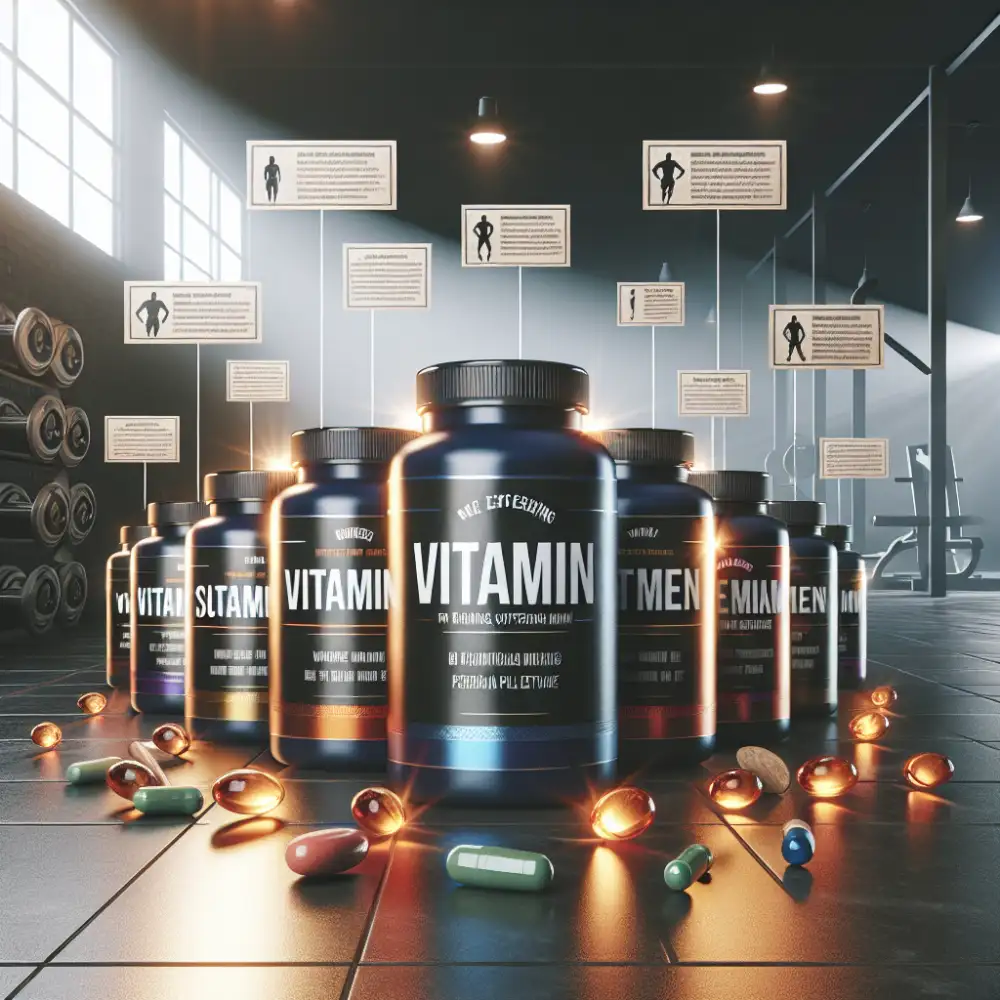
Vitamin C for Recovery
While not directly involved in muscle growth, vitamin C plays a crucial role in your body's recovery process. Intense workouts create oxidative stress, leading to cellular damage. Vitamin C, a powerful antioxidant, helps combat this stress, protecting your muscles and speeding up recovery. This means you're back in the gym sooner, ready to tackle your next workout. Good sources of vitamin C include citrus fruits, berries, and bell peppers. Aim for at least 75mg daily, but you can safely increase your intake to 2,000mg per day.
Protein for Muscle Building
Protein is crucial for muscle building, but vitamins also play a vital role in supporting your workouts and recovery. Here are some of the best vitamins for men who work out:
B Vitamins: This group of vitamins (B1, B2, B3, B5, B6, B7, B9, and B12) is essential for energy metabolism, converting food into fuel for your workouts. They also help repair and build muscle tissue. You can find B vitamins in lean meats, poultry, fish, whole grains, and legumes.
Vitamin D: Often called the "sunshine vitamin" because your body produces it in response to sunlight, vitamin D is crucial for calcium absorption, bone health, and muscle function. Many people, especially those who live in northern climates, may be deficient in vitamin D. You can get vitamin D from fatty fish, eggs, and fortified foods.
Vitamin C: This potent antioxidant protects your cells from damage caused by exercise. It also helps your body produce collagen, a protein that supports healthy joints and connective tissues. Excellent sources of vitamin C include citrus fruits, berries, and bell peppers.
Vitamin E: Another powerful antioxidant, vitamin E, helps reduce muscle damage and inflammation caused by exercise. It can be found in nuts, seeds, and vegetable oils.
Vitamin A: This vitamin is essential for maintaining healthy vision, skin, and immune function. It also plays a role in protein synthesis and cell growth, which are crucial for muscle building. You can find vitamin A in orange and yellow fruits and vegetables, as well as leafy greens.
While a balanced diet should provide most of the vitamins you need, men who work out regularly may benefit from a high-quality multivitamin supplement. Look for one specifically designed for active men that includes the vitamins mentioned above.
Remember to consult your doctor or a registered
Creatine for Strength Gains
Creatine is a natural compound found in small amounts in foods like red meat and fish. It plays a crucial role in energy production during high-intensity exercise, like weightlifting. By supplementing with creatine, you can increase your body's stores of creatine phosphate, which is used to replenish ATP, the primary energy currency of your cells. This can lead to improvements in strength, power output, and muscle mass gains.
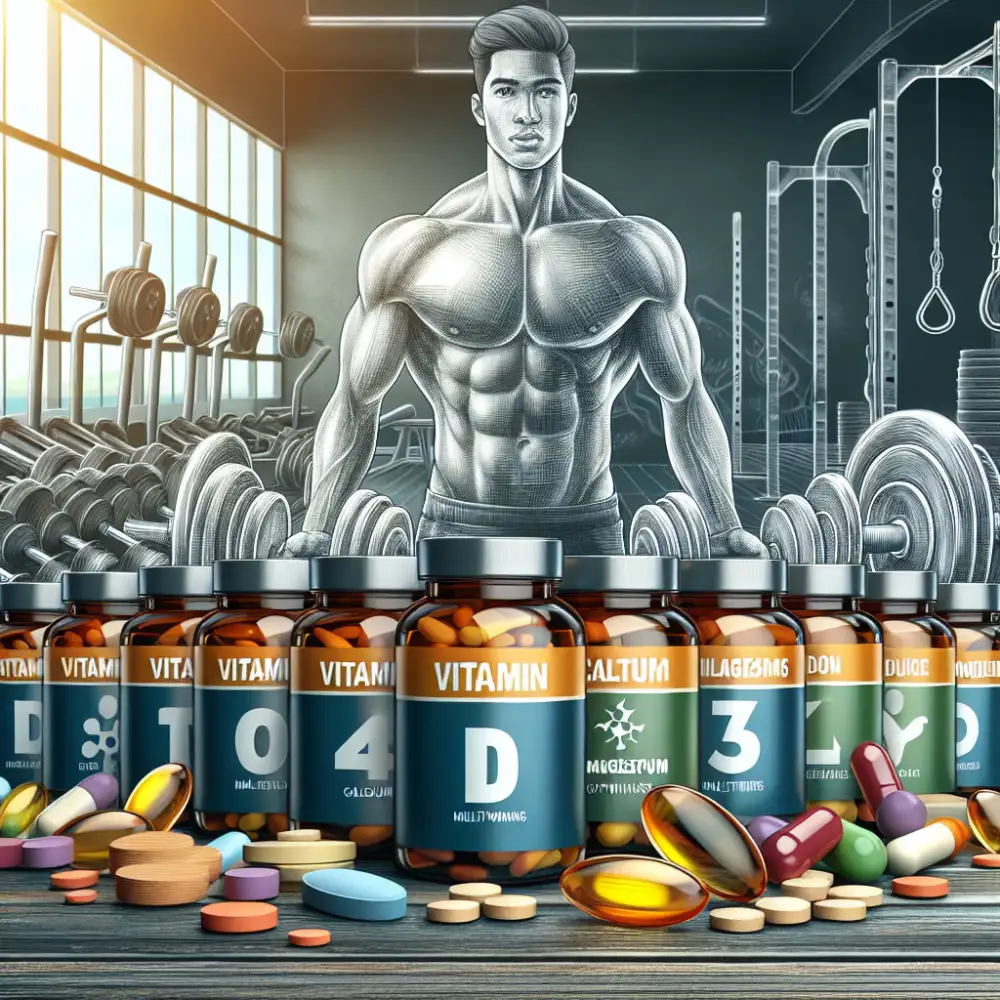
When it comes to dosage, a common recommendation is to start with a loading phase of 20 grams per day for 5-7 days, followed by a maintenance phase of 3-5 grams per day. Creatine is generally safe for most healthy individuals, but it's always a good idea to consult with your doctor before starting any new supplement regimen.
While creatine can provide a significant boost to your workouts, it's essential to remember that supplements should complement a well-rounded diet and exercise program, not replace them. Focus on consuming a balanced diet rich in protein, carbohydrates, and healthy fats to support your fitness goals.
BCAAs for Muscle Repair
Branched-chain amino acids (BCAAs) are often touted for their potential role in muscle repair and growth, a popular topic among men who work out. BCAAs consist of three essential amino acids: leucine, isoleucine, and valine. While they are important for muscle protein synthesis, it's crucial to understand that they are just one piece of the puzzle.
A balanced diet with sufficient protein is the cornerstone of muscle repair. BCAAs are readily available in protein-rich foods like chicken, beef, fish, eggs, and dairy products. If you're consistently hitting your protein goals through your diet, supplementing with BCAAs may not provide additional benefits. However, if you struggle to meet your protein needs through food alone, a BCAA supplement might be worth considering.
Remember that individual needs vary. It's always best to consult with a registered dietitian or a qualified healthcare professional to determine the right approach for you. They can assess your dietary intake, exercise regimen, and overall health to provide personalized recommendations.
While BCAAs can play a role in muscle repair, they are most effective when combined with a well-rounded approach that includes a balanced diet, proper training, and adequate rest.
Glutamine for Muscle Soreness
Glutamine is a popular supplement among men who work out, often marketed for its potential to reduce muscle soreness and speed up recovery. It's an amino acid that plays a role in muscle protein synthesis and helps repair muscle tissue after intense workouts. While our bodies naturally produce glutamine, strenuous exercise can deplete its levels. This is where supplementation comes in. Some studies suggest that glutamine supplementation might help decrease muscle soreness and improve recovery after intense exercise. However, the scientific evidence is mixed, and more research is needed to confirm these benefits.
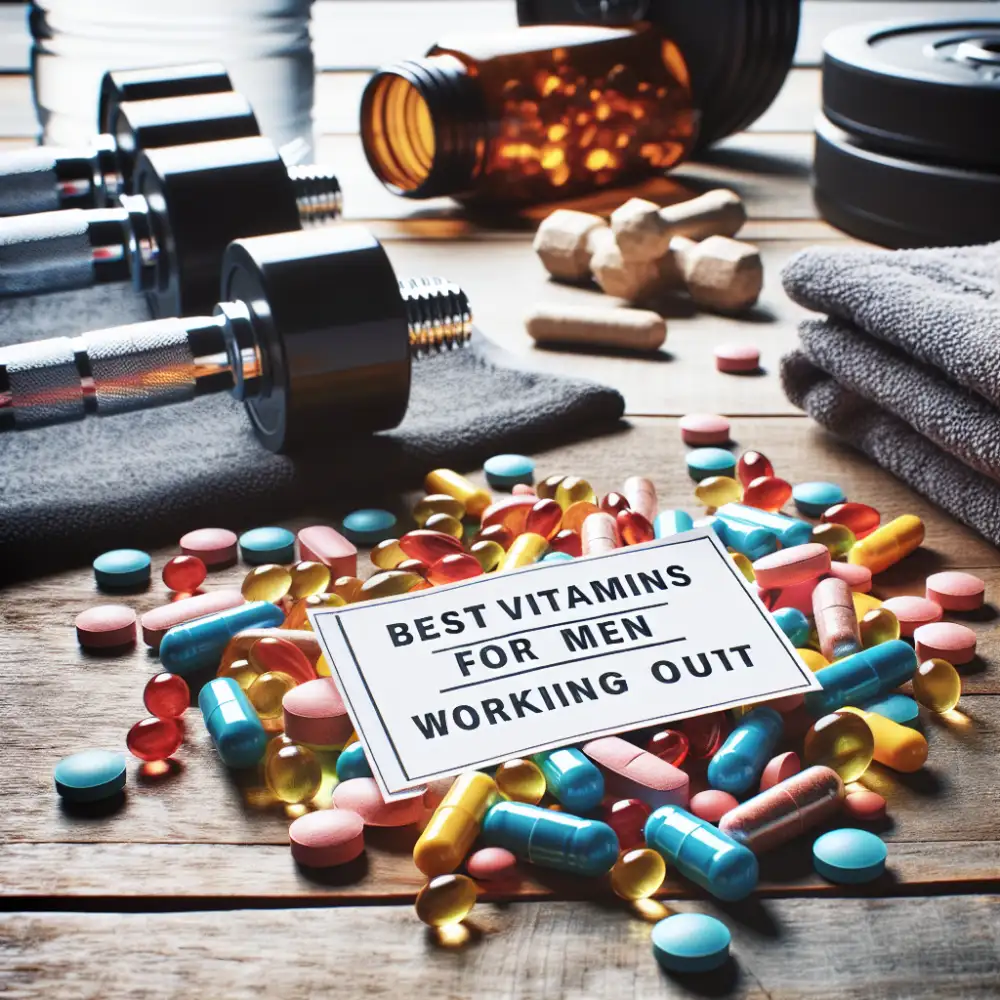

If you're considering adding glutamine to your regimen, it's crucial to consult with your doctor or a registered dietitian. They can help determine if supplementation is right for you, considering your individual health status, workout routine, and dietary needs. Remember, supplements are not a magic solution and work best when combined with a balanced diet, proper hydration, and adequate rest.
Beyond glutamine, other essential vitamins for men who work out include:
Vitamin D: Crucial for muscle function, bone health, and immune support.
B Vitamins: Involved in energy metabolism, helping convert food into fuel for workouts.
Vitamin C: A powerful antioxidant that protects cells from exercise-induced damage.
Vitamin E: Another antioxidant that supports muscle recovery.
Zinc: Plays a vital role in muscle growth, repair, and testosterone production.
Remember, while supplements can be beneficial, prioritize whole food sources of these nutrients. A balanced diet rich in fruits, vegetables, lean proteins, and whole grains is the foundation for optimal health and fitness.
A tailored approach is always best, but generally speaking, active men should focus on getting enough protein, healthy fats, and complex carbohydrates from their diet, along with vitamins D, B-complex, and minerals like zinc and magnesium.
Dr. Elias Montgomery
Omega-3s for Joint Health
While hitting the gym helps you build muscle, supporting your body from the inside is essential for long-term gains and injury prevention. One area often overlooked is joint health. That's where omega-3 fatty acids come in. Omega-3s, particularly EPA and DHA found in fatty fish, offer potent anti-inflammatory benefits. This is crucial for men who work out, as intense training can lead to inflammation and joint pain. By reducing inflammation, omega-3s may help improve mobility, speed up recovery, and keep those joints feeling good, allowing you to push harder and longer in the gym. Aim for at least two servings of fatty fish like salmon, mackerel, or sardines per week. You can also supplement with high-quality fish oil or krill oil. Remember, taking care of your joints is just as important as taking care of your muscles when it comes to achieving your fitness goals.
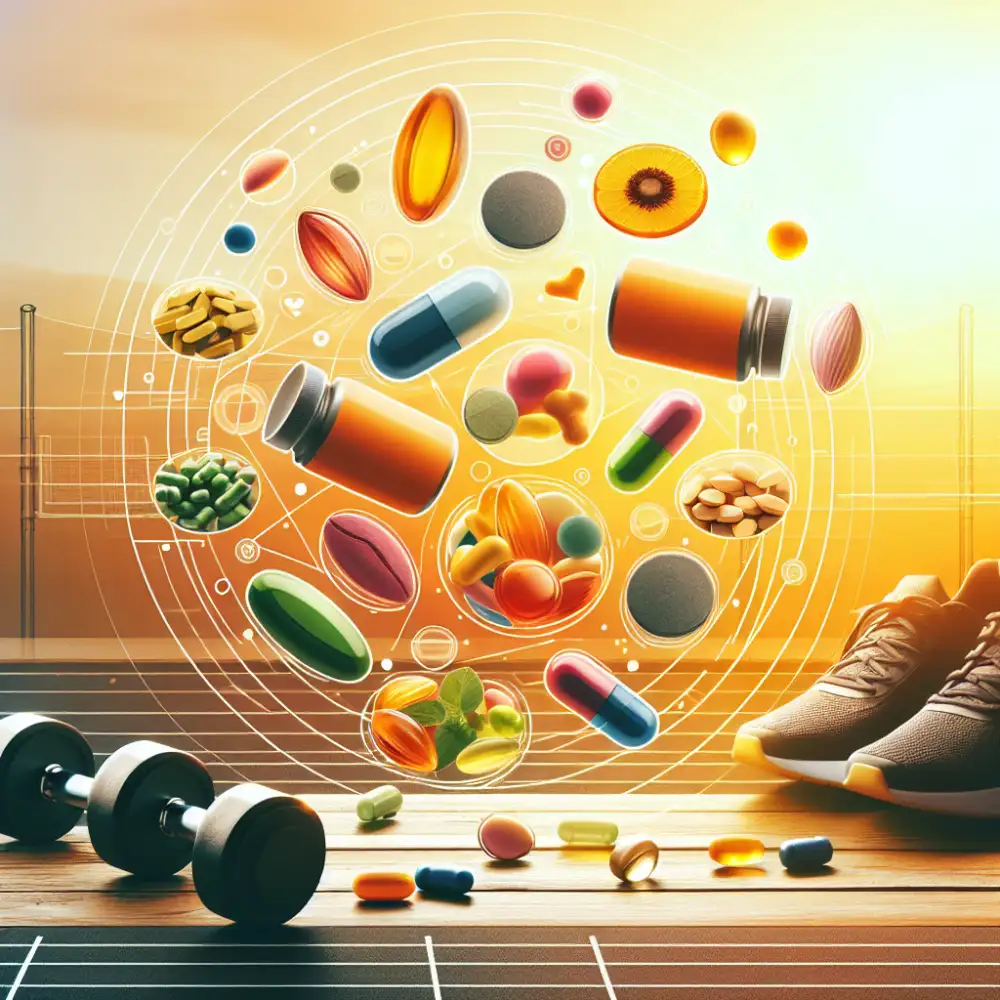
Zinc for Testosterone Levels
Zinc is often mentioned in conversations about testosterone and for good reason. This essential mineral plays a crucial role in testosterone production. Studies suggest that men with zinc deficiency tend to have lower testosterone levels compared to those with adequate zinc levels. Furthermore, supplementing with zinc has been shown to potentially boost testosterone levels, particularly in individuals with low levels.
But how does zinc actually impact testosterone? Zinc acts as a cofactor for enzymes involved in testosterone synthesis and helps prevent the conversion of testosterone to estrogen. For men engaged in intense physical activity, maintaining optimal zinc levels is even more crucial. Exercise can deplete zinc levels through sweat and increased cellular demand.
While the recommended daily intake of zinc for adult men is around 11mg, athletes and those who work out intensely might benefit from slightly higher intakes. However, it's always best to consult with a healthcare professional or registered dietitian to determine the appropriate dosage for your individual needs. Excellent food sources of zinc include oysters, beef, pumpkin seeds, and chickpeas. Incorporating these foods into your diet can help support healthy testosterone levels, especially when combined with a balanced diet and regular exercise routine.
Magnesium for Muscle Function
Magnesium plays a crucial role in muscle function and recovery, making it an essential mineral for men who work out regularly. It is involved in over 300 enzymatic reactions in the body, including energy production, protein synthesis, and muscle contraction. During exercise, your body loses magnesium through sweat, making it even more important to ensure adequate intake.
Magnesium deficiency can lead to muscle cramps, fatigue, and weakness, hindering your workouts and recovery. By maintaining optimal magnesium levels, you can enhance muscle performance, reduce exercise-induced muscle damage, and promote faster recovery.
Good sources of magnesium include leafy green vegetables, almonds, avocados, and black beans. However, if you're hitting the gym hard, you might benefit from a magnesium supplement. Look for magnesium glycinate, citrate, or malate, as these forms are well-absorbed by the body. Consult with your doctor or a registered dietitian to determine the appropriate dosage for your individual needs.
Pre-Workout Supplements for Performance
Many men hit the gym looking to improve their physique and overall health. While proper training and diet are essential, certain vitamins can provide an extra edge in the gym. Here are some of the best vitamins for men who work out:
| Vitamin/Mineral | Benefits for Working Out | Recommended Daily Intake (RDI) for Men | Good Food Sources |
|---|---|---|---|
| Vitamin D | Supports muscle growth and recovery, bone health | 600 IU (15 mcg) | Fatty fish, eggs, fortified milk |
| B Vitamins (B1, B2, B3, B6, B12) | Energy production, metabolism, red blood cell formation | Varies by B vitamin | Leafy greens, meat, poultry, fish, beans |
| Vitamin C | Antioxidant, collagen synthesis, immune support | 90 mg | Citrus fruits, berries, peppers |
| Zinc | Hormone production, muscle growth, recovery | 11 mg | Oysters, red meat, nuts, beans |
| Magnesium | Muscle function, energy production, protein synthesis | 400-420 mg | Leafy greens, nuts, seeds, dark chocolate |
B Vitamins: These play a crucial role in energy production, converting food into fuel. Look for supplements containing B-complex or individual B vitamins like B12, B6, and thiamine.
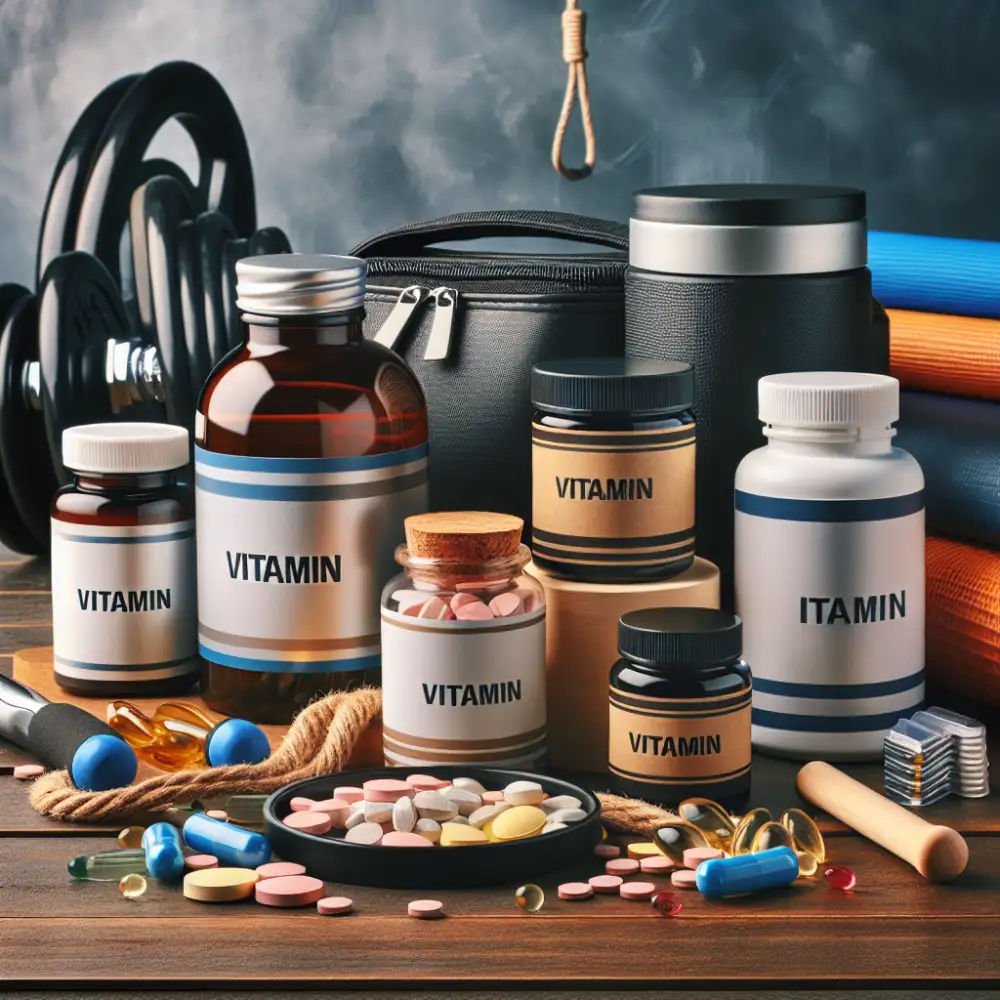
Vitamin D: Often called the "sunshine vitamin," it's crucial for muscle function, growth, and recovery. Many people, especially those in colder climates or who train indoors, may be deficient. Consider a vitamin D supplement, especially during winter.
Vitamin C: This potent antioxidant helps protect your cells from damage caused by intense workouts. It also aids in collagen production, essential for healthy joints and connective tissues.
Zinc: Vital for hormone production, including testosterone, which is crucial for muscle growth and strength. Zinc also supports immune function and recovery.
Magnesium: Involved in over 300 bodily processes, including muscle function, protein synthesis, and energy production. It can also help reduce muscle soreness and improve sleep quality.
Before starting any new supplement regimen, it's essential to consult with your doctor or a registered dietitian. They can assess your individual needs, consider any potential interactions with medications, and recommend appropriate dosages. Remember, supplements should complement a healthy lifestyle, not replace it. Focus on a balanced diet, proper hydration, and adequate sleep alongside your workout routine for optimal results.
Post-Workout Nutrition for Recovery
After an intense workout, your body needs the right nutrients to repair muscle tissue, replenish energy stores, and promote recovery. Proper post-workout nutrition is crucial for maximizing the benefits of your training. Here's what you need to know about post-workout nutrition and the best vitamins for men who work out:
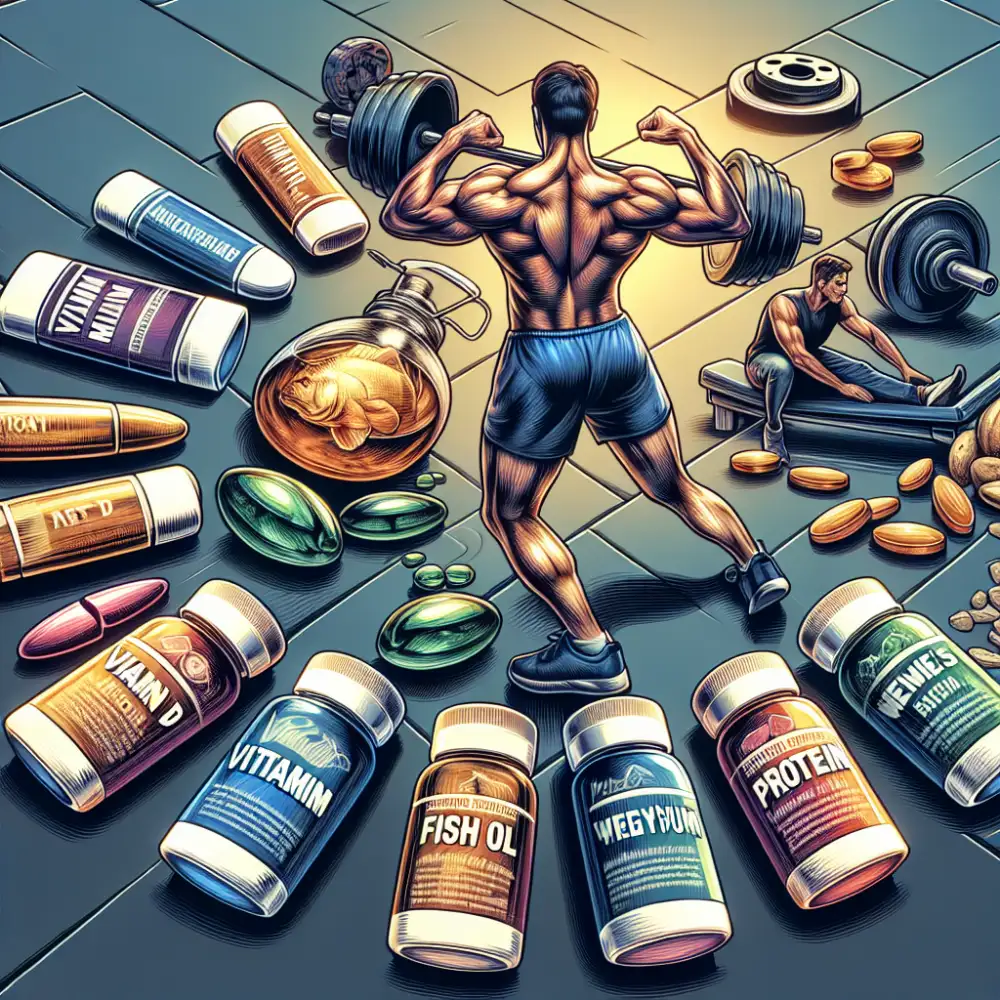
Protein is essential for muscle repair and growth. Aim to consume 20-40 grams of protein within 30-60 minutes after your workout. Good sources include:
Whey protein
Casein protein
Chicken breast
Fish
Eggs
Carbohydrates replenish glycogen stores, which are depleted during exercise. Consume carbohydrates in a 2:1 ratio with protein. Opt for complex carbohydrates like:
Brown rice
Quinoa
Sweet potatoes
Fruits
Vitamins and minerals play a vital role in recovery and overall health. Some key vitamins for men who work out include:
Vitamin C: Supports immune function and collagen production
Vitamin D: Aids in muscle function and recovery
Vitamin E: Protects cells from damage
B vitamins: Support energy metabolism
Zinc: Involved in protein synthesis and hormone production
Magnesium: Supports muscle function and relaxation
In addition to a balanced diet, consider these recommendations for the best vitamins for men who work out:
Multivitamin: A high-quality multivitamin can fill nutritional gaps.
Creatine: Improves exercise performance and promotes muscle growth.
Fish oil: Reduces inflammation and supports joint health.
Remember to stay hydrated by drinking plenty of water before, during, and after your workouts. Proper post-workout nutrition is crucial for optimizing recovery, reducing muscle soreness, and supporting your fitness goals. Consult with a healthcare professional or registered dietitian to determine the best vitamins and supplements for your individual needs.
Importance of Hydration
Staying hydrated is crucial for everyone, but it's especially important for men who work out. When you're sweating it out at the gym, you're losing fluids that need to be replenished for your body to function properly. Dehydration can lead to fatigue, muscle cramps, and decreased performance, putting a damper on your fitness goals.
But proper hydration goes beyond just water. Electrolytes, like sodium, potassium, and magnesium, are lost through sweat and play a vital role in muscle function and hydration. Consider a sports drink containing electrolytes if you're hitting intense workouts or exercising in hot conditions.
Now, let's talk vitamins. B vitamins, found in lean meats, whole grains, and leafy greens, are essential for converting food into energy, crucial for fueling your workouts. Vitamin D, which you can get from sunlight and fatty fish, supports bone health and muscle function, both essential for active men. And don't forget about vitamin C! It's a powerful antioxidant that helps protect your cells from damage caused by exercise.
Remember, while multivitamins can help fill nutritional gaps, they shouldn't replace a balanced diet. Always consult with your doctor or a registered dietitian to determine the best vitamins and hydration strategy for your individual needs.
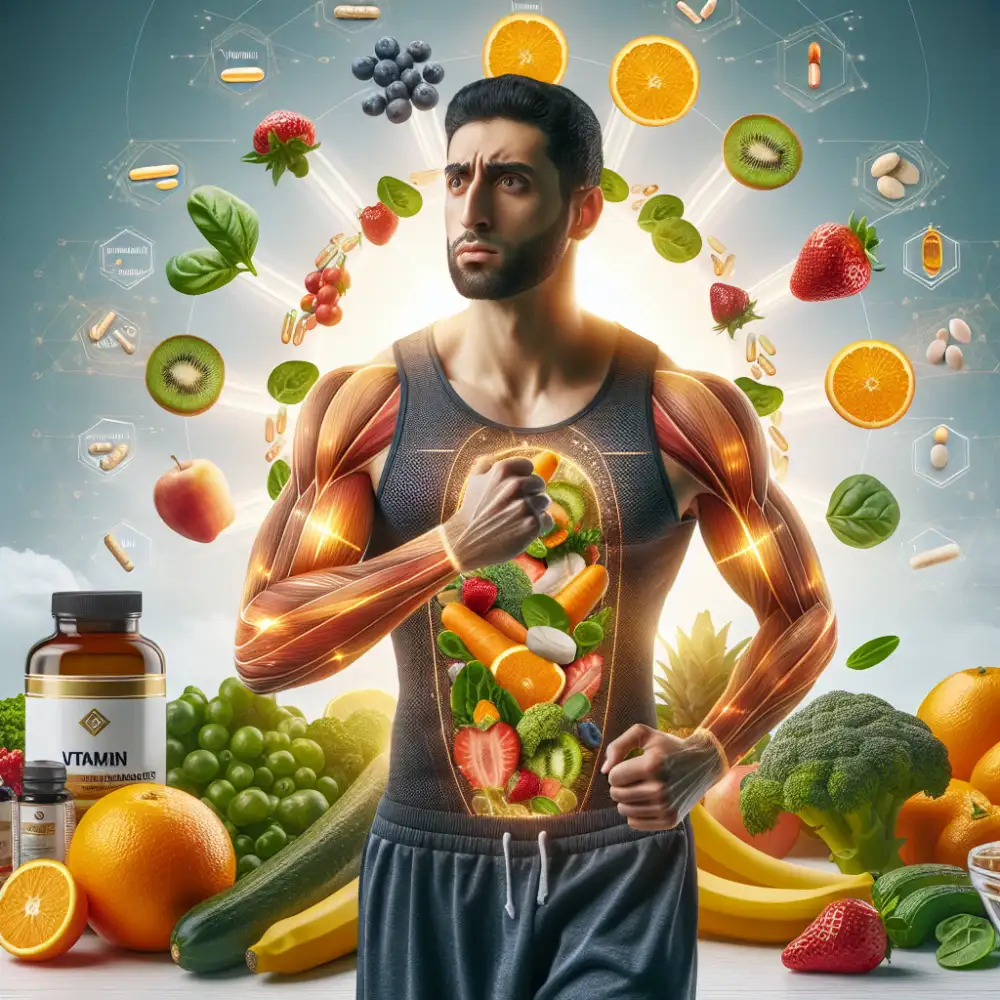
Consulting a Healthcare Professional
It’s essential to talk to your doctor before starting any new supplement regimen, including vitamins. They can assess your individual needs, consider any underlying health conditions, and advise you on the appropriate dosage and potential interactions with medications you might be taking. A healthcare professional can also order blood tests to check for any vitamin deficiencies you might have. This personalized approach ensures you’re getting the right nutrients in the right amounts for your specific situation. Remember, supplements are not a replacement for a balanced diet and healthy lifestyle. They are meant to complement your overall health and fitness efforts. Always prioritize whole foods and consult your doctor for personalized advice.
Published: 28. 06. 2024
Category: Health

